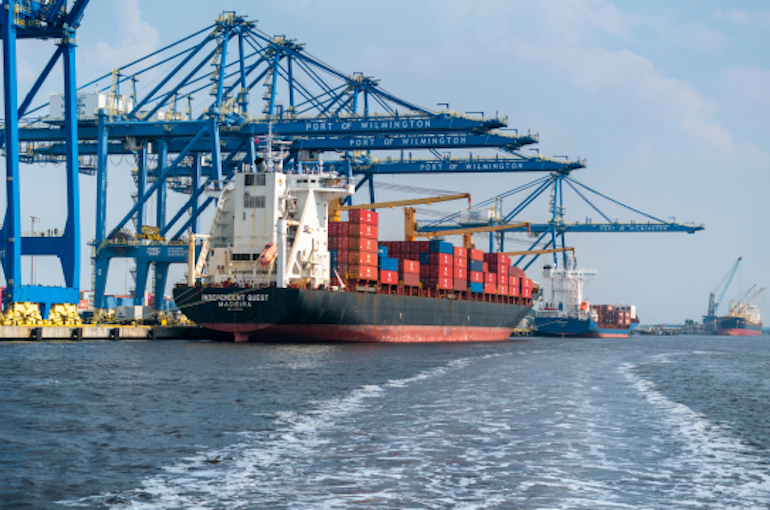 China Says CPTPP Accession Would Boost Member Economies and Global Trade
China Says CPTPP Accession Would Boost Member Economies and Global Trade(Yicai) Nov. 7 -- China’s accession to the the Comprehensive and Progressive Agreement for Trans-Pacific Partnership, an Asia-Pacific trade pact, would deliver measurable economic gains to the group’s members and to global trade and growth, according to officials from the country’s Ministry of Commerce and Shanghai's Pudong New Area.
China’s accession to the CPTPP would economically benefit member states and the global economy, bringing mutual benefit and win-win outcomes, He Yadong, a ministry spokesperson, said at a press conference in Beijing yesterday.
China's membership would boost the gross domestic product of member countries by 0.2 percent to 1.1 percent, increase exports by 2.5 percent to 11.8 percent, raise global real GDP by 0.2 percent, and expand international trade by 2.8 percent, He said, citing estimates made by researchers at the Chinese Academy of Social Sciences.
Against the backdrop of severe disruption to the global economic and trade order from unilateralism and protectionism, China's membership would play a greater role in upholding multilateralism and free trade, He added.
It would also support the creation of a larger and more integrated production and supply chain system within the region, He noted, adding that this would enhance the breadth, depth, and convenience of industrial cooperation, bringing new growth opportunities to the oil, agriculture, educational, and other sectors for members.
China applied to join the CPTPP -- a free trade agreement among 11 countries in the Asia-Pacific region and the United Kingdom, so far -- in September 2021, and applied to join the Digital Economy Partnership Agreement in the November of the same year. Since then China has repeatedly said it is willing and prepared to meet the CPTPP’s high-standard obligations and has taken part in accession consultations.
Pudong New Area’s level of openness has generally met the requirements outlined in the provisions of the CPTPP and the DEPA, Wu Jincheng, the district’s mayor, noted at a sub-forum of the Hongqiao International Economic Forum in Shanghai yesterday. Pudong is steadily expanding its institutional openness, which includes rules, regulations, and standards, Wu added.
Pudong is one of China’s most open and facilitative regions for foreign trade and investment, is actively promoting higher-level, orderly and freer cross-border flows of domestic and international factors, and has already cleared restrictive measures in the manufacturing sector, Wu said.
Moreover, the district has taken the lead in piloting opening-up services such as value-added telecoms as well as cell and gene therapy, he said.
Pudong is aligning with the Organisation for Economic Co-operation and Development Services Trade Restrictiveness Index and the World Bank's business environment maturity assessment indicators, continuously promoting a higher level of openness in services, digital, and goods trade, Wu noted.
“In particular, in areas such as government procurement, green and low-carbon development, and labor protection -- areas related to 'post-border' policies -- we’ll further refine the rules for opening-up.” he pointed out.
In the World Bank’s China enterprise survey report released this May, Pudong had reached world-leading levels in 22 indicators including power supply reliability, access to financial services, and market fairness.
Editors: Tang Shihua, Martin Kadiev